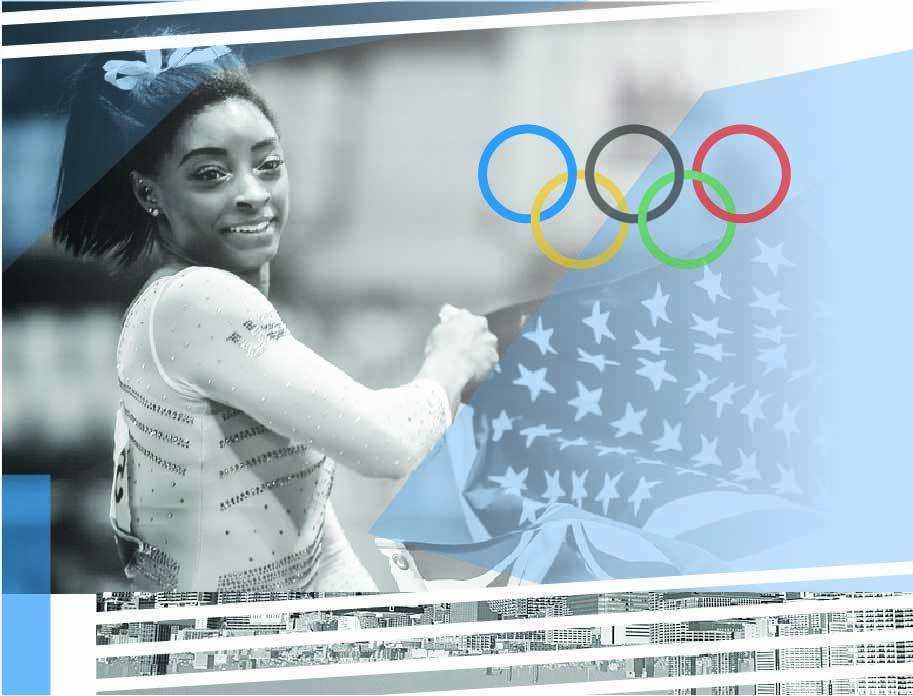
Prof Kim Bissell
Southern Progress Endowed Professor in Magazine Journalism and Associate Dean for Research in the College of Communication and Information Sciences at the University of Alabama. She has done research in health and sports communication for more than 20 years and has received external funding for her work in health disparities and children.

Tyana Ellis
Doctoral candidate studying Health Communication in the College of Communication and Information Sciences at the University of Alabama. Much of her research focuses on health disparities including mental health and food insecurity experienced by college students, community health initiatives, and health discourse on social media.

Section 1: Tokyo & Mega-Events
- Public relations as the key in the 2020 Tokyo Olympic and Paralympic Games
- Tokyo 2020, East Asian geopolitics and Olympic diplomacy
- Anti-sex beds? Fake news! : why this video went massively viral?
- Power sharing: Olympic sponsorship and the athlete’s personal brand
- The Tokyo 2020 Organizing Committee’s veil of effective public relations to help save itself and the start of the Games
- Host city and mega-events: Olympic legacy in Japan
- The rise of critical consciousness in Japan: An intangible and unintended legacy of the Tokyo 2020 Olympic Games
- The soft power of the Olympics in the age of Covid 19
- Tokyo 2020 Olympic Games, nationalism, identity and soft power
- The typhoon games
- Environmental leadership showcased in the Olympic Games
- Simone Biles and prioritizing athlete well-being
- Deliver a medal or apologize: A daunting task imposed on Japanese Olympians
- What happened to Rule 40 at Tokyo 2020?
- Cultural programming at Tokyo 2020: the impossible Olympic festival city?
- A green Olympic legacy for future generations?
- Lessons from Tokyo: the impact of the Paralympics in Japan
- Let’s play! Inspiring an inclusive mindset with a hands-on Paralympic experience for children and teenagers in Japan.
- The Olympic & Paralympic sponsorship without category exclusivity: Background of sponsorship exclusivity in Olympic and Paralympic Games (OPG)
- Counting cases, counting medals: Containing the Olympic contagion during the Tokyo Games
- The Olympic Games and ambush marketing via social media
- Pride and burden of striving for perfection at the Olympics
“If we have children, we risk pay cuts from our sponsors during pregnancy and afterward. It is one example of a sports industry where the rules are still mostly made for and by men.” Allyson Felix, 11-time Olympic medalist
Allyson Felix, with 11 Olympic medals spread across four Olympic Games, had her pay dropped by 70% by former sponsor Nike following the birth of her daughter and dealt with “tremendous stress” negotiating sponsorship deals. She was in the process of re-negotiating her Nike contract at the end of 2017, pregnant with her daughter Cammy, but faced pushback from Nike because the company was not willing to add language to her contract that would add maternity protections for athletes. Shortly thereafter, Nike asked her to participate in a female empowerment ad (Coleman, 2021). Felix left Nike and signed with Athleta in 2019. Felix wasn’t the only athlete to leave Nike as Simone Biles also left the company to work with Athleta in 2021 because she said she felt Athleta supported her as an individual outside of what she did in the sport.
The 2020 Olympic Games have put a spotlight on many issues and challenges that female athletes have dealt with from choosing to be a mother or an athlete to emotional stress to financial burden–all issues beyond training to compete with the world’s best. The mental health of athletes has come front and center by recent statements made by Biles and professional tennis player Naomi Osaka, and both athletes made multiple statements about withdrawing from competition to focus on their mental health. These games have, seemingly, opened up a path for athletes to speak out and have their voices heard. Athletes’ sources of stress, anxiety, and ultimately mental well-being are rooted in many areas, but ultimately, the result, as Biles noted, won’t be an outcome that is expected or hoped for.
Aliphine Tuliamuk, the 1st place finisher in the Olympic Trials for the marathon in February 2020, said that she was being forced to choose between the Games and her baby because at that time, the IOC had announced the ban on foreign spectators including the infant children of female athletes. Tuliamuk began to petition the IOC repeatedly to be given permission to bring her infant daughter–born in January 2021–with her to Tokyo so she could continue to breastfeed her baby. Tuliamuk’s situation was not an isolated incident as several high profile female Olympic athletes including Alex Morgan from the USWNT, Allyson Felix, and 11 other female athletes rounding out the 2021 Olympic roster also had babies or young children. Tennis star Serena Williams and winner of four Olympic medals noted that she would opt out of the Tokyo Olympics if forced to leave her three-year-old daughter behind. While pregnancy alone can be challenging, the toughest hurdles, pun intended, often come after having a baby. While Tuliamuk spent time along with other female athletes like Kim Gaucher (U.S. women’s basketball team) seeking ways to bring her baby with her to Tokyo, she was also having to log the 100-plus mile weeks to get back into Olympic marathon shape. Tuliamuk noted that when she was given clearance to return to running, not an hour went by when she didn’t think about having to make the choice between participating in her first Olympic Games or staying home with her baby.
Decisions related to motherhood aren’t the only issues and sources of stress and anxiety elite athletes are having to manage. The Norwegian women’s handball team found their bikini bottoms to be too revealing but when they chose to wear shorts, they were fined by the European Handball Federation for a “case of improper clothing” because shorts are too long per the clothing guidelines. Female athletes in an array of sports including handball, volleyball, and gymnastics have been taking a stand against overt sexualization as they challenge existing guidelines for women’s uniforms. Supporters such as the Norway Handball Federation have declared that “together we will continue to fight to change the rules for clothing so that players can play in the clothes they are comfortable with!”
These examples highlight just some of the ways female Olympic athletes have had to balance not only the intense training required for competition but the stress and pressure, sometimes not at all related to participation and competition. When Biles withdrew from the gymnastics team event citing mental health and physical safety, the “issue became a defining event for the Games” (Park, 2021). From marathoners to track stars to gymnasts, voices have started to emerge, and maybe we’ll start to see a shift from awareness to action. By the actions taken by Biles, Felix, Tuliamuk and so many others, the hope is that the narrative will start to change and the way female athletes are viewed will be reframed.

